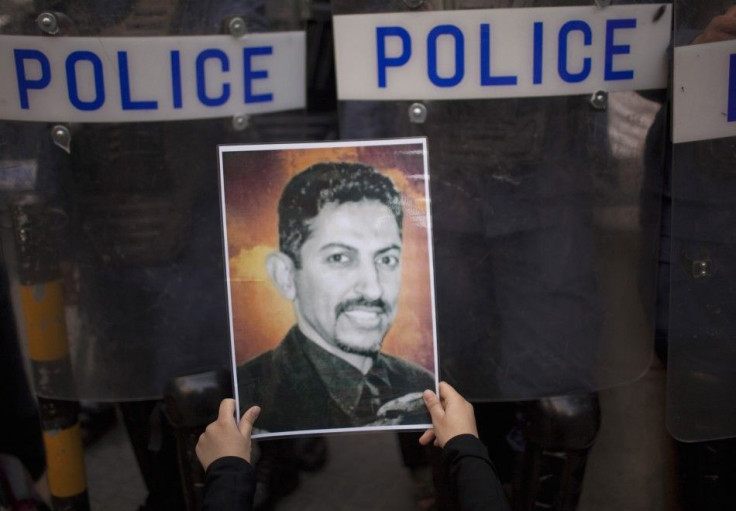Jailed Bahraini Activist Khawaja Wins Re-Trial

Abdulhadi al-Khawaja, who was jailed on a life-sentence last April in Bahrain for participating in pro-democracy protests against the ruling government, was granted a re-trial on Monday by the tiny kingdom's highest appeal court.
He was sentenced after a military crackdown of month- long protests against Bahrain's ruling regime last spring and convicted along with 20 other activists of plotting to overthrow the Sunni rulers.
The court ordered a re-trial for the activists and for al-Khawaja, who has been on a hunger-strike since early February and is in a fragile state of health.
No date has yet been set for the new trial.
Although a re-trial seems to be a victory for activists and for al-Khawaja's case, not everyone agrees with that sentiment.
Mohammed al-Tajer, one lawyer in the case, said I think he will not stop this strike as this verdict brought no big change to his situation, according to Agence French Presse.
Furthermore, Khadija al Mousawi, Al-Khawaja's wife, told Al Jazeera after the court ruling that there is not much to celebrate. Although the judge ruled for a re-trial, he also said that all activists are required to remain in jail while awaiting the next trial date.
Worried and angry that her husband must remain incarcerated, she said, This is not a victory, so I am very surprised people are claiming it as so. Set them free first, then set a retrial, if it has to happen.
She then added: My husband is on his 82nd day of his hunger strike, and yes, he has been force-fed for the last five days.
Since February 2012, Al-Khawaja has lost 25 percent of his body weight and is in serious condition. His wife told Reuters last week that He was talking about accepting death as the path of freedom.
It is still uncertain whether or not he will be willing to end his 82 day long hunger strike in response to Monday's court decision.
Bahrain's military hospital, where Al-Khawaja has been staying during his hunger strike, has denied allegations of force-feeding or any mistreatment of prisoners.
UN Secretary General Ban Ki-moon, expressed his concerns over the situation in Bahrain, according to his spokesperson's statement,
The Secretary-General once again urges the Bahraini authorities to resolve Mr. Al-Khawaja's case based on due process and humanitarian considerations without any further delay, the statement read.
Al-Khawaja's case has also fueled the rift between Sunni and Shia in the Gulf Kingdom: on one hand he has become a rallying symbol for the Shia opposition to the ruling regime, but on the other hand, the ruling family and its Sunni supporters consider him a dangerous threat to stability.
© Copyright IBTimes 2024. All rights reserved.











